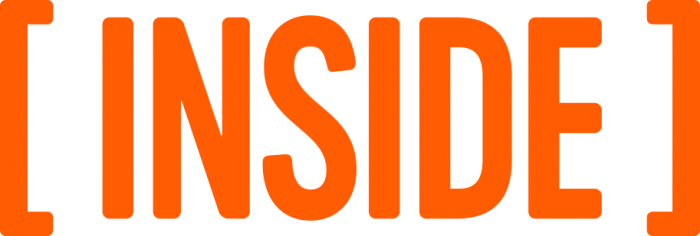Header image: Aurora
Aurora Innovation is an autonomous vehicle company founded in 2017 by Sterling Anderson, Chris Urmson, and Drew Bagnell based in Mountain View, Calif. Before starting Aurora, Urmson was the lead engineer at Google’s self-driving car project, while Anderson worked on Tesla’s Model X project, and Bagnell worked on autonomous vehicles at Uber. Aurora has raised $1.1B to date from investors such as Toyota, Amazon, Honda, Greylock Ventures, and Sequoia Capital. It has more than 1,600 employees.
Aurora’s signature product is the Aurora Driver, “a platform that brings together software, hardware and data services to operate passenger vehicles, light commercial vehicles, and heavy-duty trucks across a range of applications.” Unlike other autonomous vehicle companies focused on developing self-driving cars, Aurora’s first product will be a driverless truck.
Aurora Funding Timeline
- February 2018: Aurora raises $90M from Greylock Ventures and Reid Hoffman (co-founder of LinkedIn) joins the board.
- February 2019: Aurora raises $530M in its Series B funding round at a valuation over $2.5B.
- May 2018: Aurora raises additional funding from Toyota and Hyundai to take its total Series B funding to more than $600M
- December 2020: Uber invests $400M in Aurora and takes a 26% stake. The startup’s valuation hits $10B. (tweet this)
Aurora Partnerships and Acquisitions
Hyundai – Hyundai and Aurora partnered in January 2018 to bring autonomous Level 4 vehicles to the market by 2021. Level 4 autonomy is when the vehicle can operate by itself in most environments.
Fiat Chrysler – In June 2019, Fiat Chrysler partnered with Aurora to develop self-driving commercial vehicles such as trucks and vans. The startup is hoping to develop commercial vehicles for third-party delivery contractors.
Uber – In December 2020, Aurora acquired Uber’s self-driving car unit Uber ATG in an all-stock transaction. Uber ATG was valued at $4B (down from its $7.25B valuation in April 2019). Uber and ATG investors and employees acquired a 40% stake in Aurora and CEO Dara Khosrowshahi joined its board.
Paccar – In January 2021, Aurora partnered with truck manufacturer Paccar to produce and deploy autonomous trucks. This marked the company’s first commercial application of autonomous trucks.
Toyota/Densio – In February 2021, Aurora partnered with Toyota and auto-parts supplier Densio to develop and test self-driving vehicles, starting with Toyota Sienna minivans. Testing is expected to begin before the end of 2021 in the Bay Area, Michigan, Pittsburgh, and Texas. Through the partnership, Aurora and Toyota intend to offer financing, insurance, and maintenance options for the self-driving vehicles once they're deployed in larger numbers.
OURS Technology and Blackmore – In March 2021, Aurora acquired LiDAR startup OURS Technology for an undisclosed price. OURS uses frequency-modulated, continuous-wave (FMCW) LiDAR, which enables vehicles to see further and faster. Aurora's first vehicle will be an autonomous truck, and its plans to use OURS' FMCW technology to expand operations and reduce costs. In 2019, Aurora had acquired another FMCW LiDAR startup, Blackmore, based in Montana.
Uber Advanced Technologies Group (ATG)*
Uber ATG Timeline:
- Early 2015: Uber launches its autonomous vehicle unit, Uber ATG, and hires 40 scientists and researchers from Carnegie Mellon University's robotics division.
- September 2016: Uber ATG begins testing an autonomous ride-hailing service for a limited number of customers in Pittsburgh as part of a pilot program.
- December 2016: It begins testing self-driving vehicles in San Francisco, however, a week later California’s DMV revokes the registrations for the entire fleet as they were "improperly issued."
- February 2017: ATG moves the testing program to Phoenix, Ariz.
- March 2018: An Uber self-driving car is in a fatal accident involving a pedestrian. An investigation by the National Transportation Safety Board would later find all parties, including the state and federal government, responsible for the incident.
- December 2020: Uber sells ATG to Aurora Innovation.
Between 2017 and 2018, Uber and one of its biggest rivals Waymo were engaged in a legal dispute.
Waymo/Uber Legal Dispute – A Timeline:
- January 2016: Waymo Founder Anthony Levandowski leaves the Alphabet-owned company to start Otto, a self-driving truck startup.
- August 2016: Otto is acquired by Uber for $680M.
- February 2017: Waymo sues Uber, accusing the ride-sharing company of stealing Google’s self-driving car trade secrets.
- May 2017: Uber fires Levandowski after he fails to comply with a court order to turn in relevant documents.
- February 2018: Uber and Waymo reach a settlement; Uber agrees to pay $245M to Waymo.
- July 2018: Uber shuts down its self-driving truck program, after having invested $925M.
- 2019: Levandowski is indicted and later pleads guilty on a federal charge of stealing self-driving car trade secrets while he worked at Waymo. He admits that he downloaded more than 14,000 documents before leaving the company's self-driving division.
- January 2021: Former President Donald Trump pardons Levandowski. The White House says he "led Google’s efforts to create self-driving technology" and "has paid a significant price for his actions."
Why did Uber sell ATG?
In 2016, former Uber CEO Travis Kalanick said the development of autonomous vehicles was "existential" for the ride-hailing company. Kalanick resigned as CEO in June 2017 and Dara Khosrowshahi replaced him a few months later. When Uber went public in May 2019, it came under pressure to become profitable. Under Khosrowshahi’s leadership, Uber has sold expensive and unprofitable businesses such as its electric bike division Jump and air-taxi unit.
Instead, Uber has focused on its core ride-hailing and food delivery business and is on track to be profitable in 2021. In February 2021, prominent venture capitalist Bill Gurley said Uber "probably burned $2.5 billion on autonomous that was a waste of money," and should have focused on growing Uber Eats earlier. Gurley’s firm Benchmark first invested in Uber in 2011 and he sat on the company’s board until 2017.
Note: Inside.com founder and CEO Jason Calacanis is an investor in Uber.
Share this article on Twitter.
About the writer: Jigney Pathak is a Business Researcher at Inside who loves technology, finance, and sports. He has a Bachelor of Business Administration with a finance specialization and has previously worked at Salesforce.




